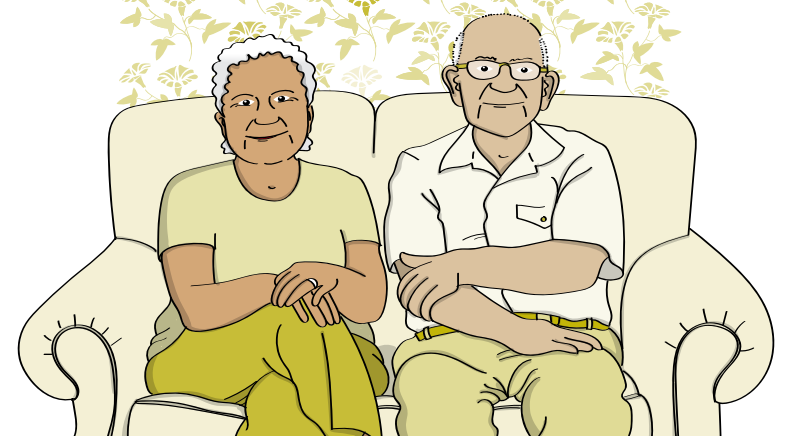
Human Connection, Socially Distanced
blog | 14 Dec 2020
Shining a light on intergenerational connection through the COVID19 pandemic.
When Aotearoa, New Zealand was plunged into national lockdown back in March, many of us got our first real taste of having our movements and social activities restricted. But just as social distancing became our new normal, we increasingly reached out to each other – finding creative ways to safely meet the fundamentally human need to connect.
At Innovation Unit we’ve done a lot of listening, thinking and dreaming over the past two years to better understand what social connectedness means to older New Zealanders, Kaumātua and Kuia, and how we might build and sustain meaningful connections as we age. One area which has generated a lot of interest and excitement here in New Zealand and internationally is intergenerational connection or the bonds between people who are significantly older or younger than each other. As our ‘team of five million’ was asked to come together and support each other and keep the most vulnerable amongst us safe we wondered:
- How intergenerational connections have been affected by the COVID19 pandemic and
- How those relationships have supported older and younger New Zealanders over this time.
With the support of Te Hiringa Hauora / The Health Promotion Agency, We talked to people from across Aotearoa / New Zealand about their experiences: young and old, urban and rural, those who were living alone, with whānua, with partners. We spoke to people via phone and zoom, connected through facebook, email and even received stories and reflections through the post. After capturing their unique perspectives we brought them together to explore the most important messages we needed to share to inform the building of a better, more connected future. These vital insights were:
- Intergenerational relationships are just human connections
Relationships happen between individuals at a human level and their success or failure at any age comes down to the basics: shared values, interests, and the intangible factors which fuel human connection. - Fear of ‘being a burden’ is a major barrier to older people reaching out and connecting
Intergenerational connections are hugely appreciated by both older and younger people, however older people worry about being a burden to family, friends and neighbours. Equally, younger people feel awkward about reaching out to elders in case they are seen as patronising or annoying. - COVID19 has provided excuses and opportunities for connection
The awkwardness people feel in reaching out became less of an issue when we had a shared experience to bond over, time to do so, and practical ways we could help. Offering to pick up shopping, or putting teddy bears in windows enables risk-free connections. - The ‘grandparent’ role is unique, special and not necessarily biological
We heard about the warm, non-judgemental, nurturing and safe space that older people provide for younger people, and how this was much less complicated than with parental figures. The language of family was used to express this warmth, even where connections were not familial ‘adoptive grandparents’ ‘they’re like my grandkids’ etc. - COVID19 exacerbated the loss of identity and purpose that can come with ageing.
This was particularly stark in situations where older people shifted from being active in service of their community, to being ‘protected.’ We heard stories of kaumātua and kuia thinking ‘nobody needs me,’ because they were being encouraged to stay home, while their whānau mobilised around them to keep them safe. - Lockdown temporarily paused some barriers to connection
Modern living has created barriers to connection which permeate all areas of our lives. Some of these were temporarily paused during lockdown: people had time and were active and visible in their neighbourhoods, as well as having shared experiences and a stronger sense of community.
These insights provide a shared foundation for learning from this time. However the experiences of the people we spoke to were diverse and their differences are important as they offer rich insight for those who work in or care about older people. Some found this time incredibly challenging, others felt lockdown was like any other day, and for some it was actually easier – they felt more seen and supported than usual. To capture this richness we’ve developed a series of stories alongside and based on the accounts of those who generously shared their experiences and perspectives with us.
There are voices missing from this kōrero: we know people’s experiences of lockdown and COVID19 more broadly have been hugely diverse and were limited by having to connect remotely. Our intention is for these stories to allow some voices which are often missed to be heard, and for the reality of these diverse New Zealanders to inform how we move forward together to build a more connected future, whatever the coming years might throw at us.